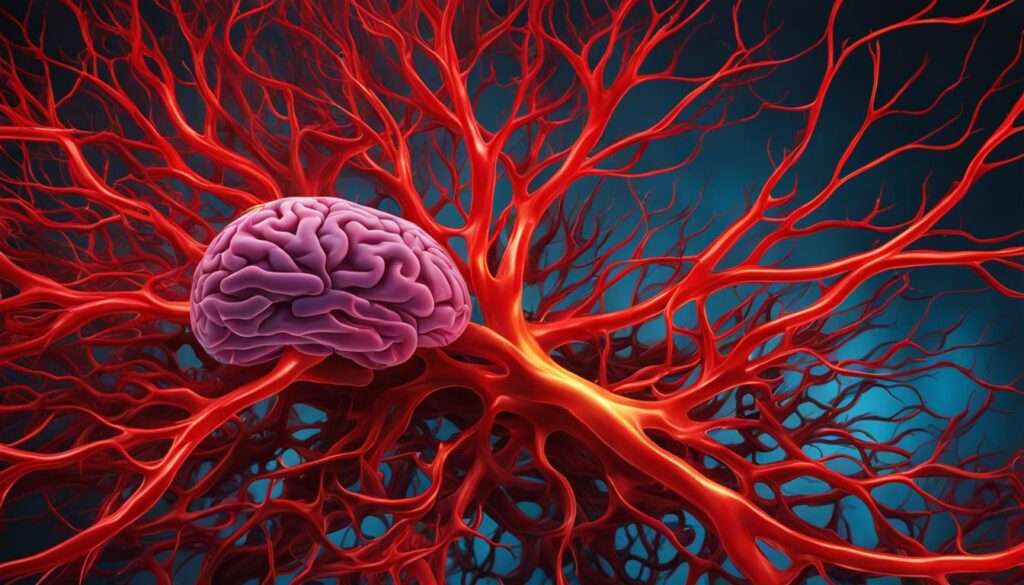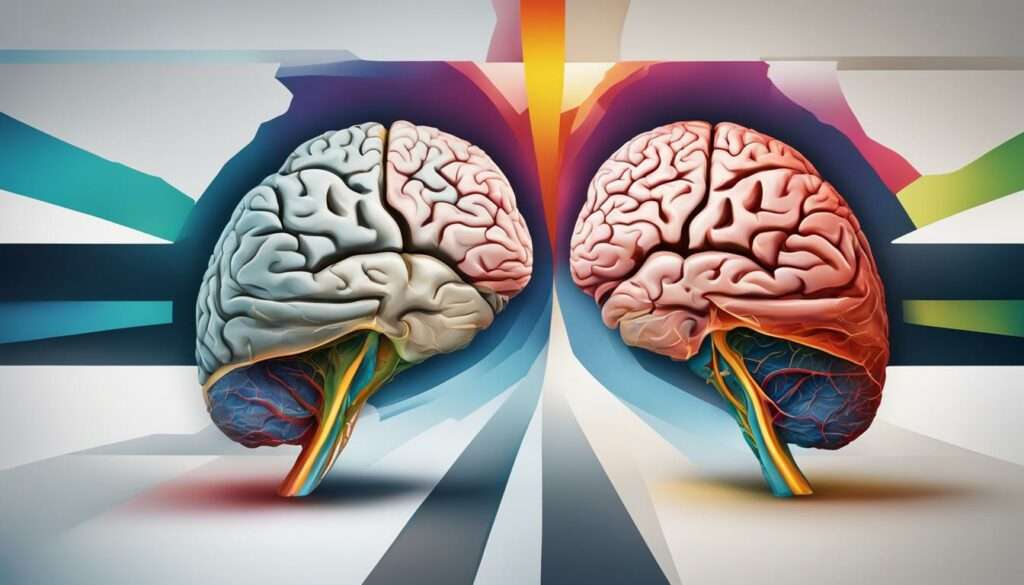As we age, it’s normal for changes to occur in our bodies and brains. However, there are steps we can take to slow down memory decline and reduce the risk of developing Alzheimer’s disease or other dementias. Maintaining brain health is crucial for overall mental wellness and cognitive abilities.
Memory decline is a normal part of aging. However, if you experience a sudden or drastic change in your memory or other cognitive abilities, it could be a sign of a more serious condition. Seeing a doctor for a memory evaluation can help rule out any underlying medical causes and help you get on the path to better brain health.
A brain health check-up can also help identify lifestyle factors that may be contributing to memory decline. If you’re not getting enough sleep, for example, it can take a toll on your cognitive abilities. Taking steps to improve your sleep habits can help improve your memory.
Making healthy lifestyle choices is one of the best things you can do for your brain health. Eating a healthy diet, exercising regularly, and managing stress can all help keep your mind sharp as you age. If you’re concerned about memory decline, talk to your doctor about what you can do to keep your brain in top shape.
Key Takeaways:
- Regular cognitive assessments and brain health check-ups can help evaluate your brain fitness and cognitive function.
- Maintaining brain health is important for overall mental wellness and cognitive abilities.
- Taking proactive steps to slow down memory decline can reduce the risk of developing Alzheimer’s disease or other dementias.
- Seeking professional guidance can provide valuable recommendations for maintaining optimal brain health.
The Importance of Exercise for Brain Health
Exercise is not only beneficial for physical health but also plays a crucial role in maintaining optimal brain function. Numerous research studies have shown that engaging in regular physical activity can significantly improve memory, cognitive function, and overall brain health.
By increasing blood flow to the brain and promoting the growth of new brain cells, exercise helps protect against age-related cognitive decline and reduces the risk of developing conditions such as Alzheimer’s disease.
Physical activity stimulates the release of chemicals in the brain that enhance mood and improve mental well-being. It also reduces inflammation and oxidative stress, which are known to contribute to cognitive impairment.
Exercise also helps the brain make neurotrophic factors, like brain-derived neurotrophic factor (BDNF), which help neurons stay alive and grow. They also improve synaptic plasticity, which is important for learning and memory.
A study published in the Journal of Aging and Physical Activity found that older adults who engaged in aerobic exercise experienced improvements in memory and attention compared to sedentary individuals.
Another study published in the Journal of Alzheimer’s Disease showed that higher levels of physical activity were associated with a reduced risk of developing Alzheimer’s disease.

Exercise Recommendations for Brain Health
To reap the benefits of exercise for brain health, it is recommended to engage in a combination of aerobic exercises, such as brisk walking, swimming, or cycling, and strength training activities like weightlifting or resistance band exercises. Aim for at least 150 minutes of moderate-intensity aerobic activity or 75 minutes of vigorous-intensity aerobic activity per week, along with muscle-strengthening activities on two or more days.
| Exercise Type | Examples |
|---|---|
| Aerobic | Brisk walking, jogging, cycling, swimming, and dancing |
| Strength Training | Weightlifting, resistance band exercises, and bodyweight exercises |
Remember to consult with a healthcare professional before starting any exercise program, especially if you have underlying medical conditions or have been sedentary for an extended period of time. Start slowly and gradually increase the intensity and duration of your workouts to avoid injury and maximize benefits.
Conclusion
Exercise is a powerful tool for promoting brain health. By incorporating regular physical activity into your routine, you can enhance cognitive function, preserve memory, and reduce the risk of developing cognitive decline or neurodegenerative diseases like Alzheimer’s. Remember, staying active not only benefits your body but also keeps your brain in top shape.
The Role of Sleep in Brain Health
Sleep plays a vital role in maintaining optimal brain health. It not only provides the necessary rest to recharge the body but also facilitates important processes that contribute to memory consolidation and overall brain function. Sleep is an essential component of maintaining brain health.
During sleep, the brain clears out toxins and abnormal proteins that can accumulate during waking hours. This cleansing process helps to maintain the health of brain cells and supports optimal cognitive function. In addition, sleep is crucial for memory consolidation, which is the process of transferring newly acquired information from short-term memory to long-term memory storage. Sleep is key to consolidating memories and optimizing brain health.
It is recommended to aim for seven to eight hours of sleep per night to allow for sufficient rest and give the brain ample time to perform these important functions. It is also important to address any sleep apnea concerns, as fragmented sleep can hinder the consolidation and storage of memories. Adequate sleep is essential for maintaining brain health and supporting memory retention.
| Sleep Quantity | Recommended Hours |
|---|---|
| Adults | 7-8 hours |
| Teenagers | 8-10 hours |
| Children (6–12 years) | 9-12 hours |
| Preschoolers (3-5 years) | 10-13 hours |
| Infants (4–11 months) | 12-15 hours |
| Newborns (0–3 months) | 14-17 hours |
Effects of Sleep Deprivation on Brain Health
Lack of sufficient sleep can have detrimental effects on brain health. Chronic sleep deprivation has been linked to cognitive decline, impaired memory function, decreased attention span, and an increased risk of developing neurodegenerative diseases such as Alzheimer’s disease. Sleep deprivation can negatively impact brain health and cognitive function.
Additionally, inadequate sleep can result in mood disturbances, increased stress levels, and reduced overall well-being. It is therefore essential to prioritize healthy sleep habits and create a conducive sleep environment to support optimal brain health. Prioritizing quality sleep is crucial for maintaining brain health and overall well-being.

The Impact of Diet on Brain Health
Eating a nutritious diet is not only important for overall physical health, but it also plays a crucial role in maintaining optimal brain function. One such diet that has gained significant attention in recent years for its positive impact on brain health is the Mediterranean diet.
The Mediterranean diet is characterized by a high intake of fruits, vegetables, legumes, whole grains, fish, and healthy fats such as olive oil. This combination of foods provides essential nutrients and antioxidants that support brain health and may help reduce the risk of cognitive decline.
One key component of the Mediterranean diet is the consumption of omega fatty acids, which are abundant in foods like fish, olive oil, and nuts. These fatty acids have been found to be vital for proper cell function in the brain and have been associated with a lower risk of cognitive decline in older adults.
Benefits of the Mediterranean Diet for Brain Health
Research has shown that following a Mediterranean diet can have several positive effects on brain health. Here are some of the potential benefits:
- Reduced risk of cognitive decline: The Mediterranean diet’s rich combination of nutrients, including omega fatty acids and antioxidants, may help protect against age-related cognitive decline.
- Improved memory and cognitive function: The nutrients found in the Mediterranean diet have been linked to better memory and cognitive function, enhancing overall brain performance.
- Reduced inflammation: The anti-inflammatory properties of the diet can help lower inflammation in the brain, which is believed to play a role in the development of neurodegenerative diseases.
- Lower risk of cardiovascular disease: The Mediterranean diet’s emphasis on heart-healthy foods can also benefit brain health by reducing the risk of cardiovascular disease, which is closely linked to cognitive decline.
By adopting a Mediterranean diet and incorporating its key components into your daily meals, you can support brain health and potentially reduce the risk of cognitive decline. Remember, a healthy diet is just one piece of the puzzle when it comes to maintaining optimal brain function. Combining it with other lifestyle factors, such as regular exercise, mental stimulation, and quality sleep, can further enhance brain health and overall well-being.
| Nutrient | Sources | Benefits |
|---|---|---|
| Omega-3 fatty acids | Fatty fish (salmon, mackerel, and sardines), walnuts, flaxseeds, and chia seeds | Support brain cell function, reduce inflammation, and lower the risk of cognitive decline |
| Antioxidants | Colorful fruits and vegetables (berries, spinach, kale, tomatoes), red wine | Protect brain cells from oxidative stress and promote overall brain health |
| B vitamins | Whole grains, legumes, nuts, seeds, and leafy greens | Support brain energy production, enhance cognitive function, and improve mood |
| Healthy fats | Olive oil, avocados, nuts, and seeds | Provide essential nutrients for brain health and support overall cognitive function |

Keeping the Brain Mentally Active
Maintaining mental activity is crucial for preserving brain health and preventing memory loss. Engaging in various activities that stimulate the brain can help improve cognitive function and enhance overall mental well-being. Here are some effective ways to keep your brain mentally active:
Puzzles and Games
Challenging puzzles, such as crosswords, Sudoku, or jigsaw puzzles, can stimulate the brain and improve problem-solving skills. These activities require mental effort and concentration, promoting neuroplasticity and enhancing cognitive abilities. Dedicate some time each day to solving puzzles to keep your brain sharp.
Reading and Learning
Reading is an excellent way to keep your brain active and expand your knowledge. Dive into books, articles, or blogs that cover a variety of topics to exercise your cognitive abilities. Learning a new skill or language can also provide mental stimulation and contribute to brain health.
Social Interaction
Interacting with others is not only essential for emotional well-being but also for maintaining brain health. Engage in meaningful conversations, join social clubs or organizations, and participate in group activities. This social interaction stimulates the brain and helps prevent cognitive decline.
Brain-Stimulating Activities
Engage in activities that specifically target brain stimulation, such as brain-training exercises or memory games. These activities are designed to challenge and improve cognitive functions like memory, attention, and problem-solving. Incorporate these exercises into your routine to keep your brain active and healthy.
By incorporating puzzles, reading, social interaction, and brain-stimulating activities into your daily life, you can maintain a sharp and healthy mind. Remember to make these activities a regular part of your routine to maximize their benefits for your brain health.
| Activity | Benefits |
|---|---|
| Puzzles and Games (e.g., crosswords, Sudoku, jigsaw puzzles) |
|
| Reading and Learning |
|
| Social Interaction |
|
| Brain-Stimulating Activities |
|

The Importance of Blood Vessel Health for the Brain
Your blood vessels play a crucial role in maintaining brain health. The brain relies on a constant supply of oxygen and nutrients delivered through these vessels, ensuring optimal functioning and preventing cognitive decline. Therefore, it is essential to prioritize the health of your blood vessels to support overall brain health.
Elevated blood pressure, high blood sugar levels, and high cholesterol are all factors that can negatively impact blood vessel health. These conditions can damage the blood vessels, leading to reduced blood flow to the brain and increasing the risk of stroke, cognitive impairment, and other neurological diseases.
Regular monitoring of your blood pressure, blood sugar, and cholesterol levels is vital for the early detection of any abnormalities. By maintaining these levels within a healthy range, you can significantly reduce the risk of blood vessel damage and promote better brain health. Incorporating lifestyle modifications such as regular physical activity, following a balanced diet, and reducing sodium intake can also contribute to maintaining healthy blood vessel function.
| Blood Vessel Health Factors | Recommended Levels |
|---|---|
| Blood Pressure | Less than 120/80 mmHg |
| Blood Sugar | Fasting glucose levels below 100 mg/dL |
| Cholesterol | Total cholesterol is below 200 mg/dL |
By prioritizing the health of your blood vessels, you are taking proactive measures to safeguard your brain health. Remember to consult with your healthcare provider for personalized guidance and to establish an appropriate monitoring and management plan for your blood vessel health.

Blood Vessel Health and Brain Performance
A healthy blood vessel system not only supports brain function but also promotes optimal brain performance. Improved blood flow ensures that the brain receives the necessary oxygen and nutrients, enhancing cognitive abilities such as memory and concentration. Conversely, impaired blood vessel function can lead to cognitive decline and an increased risk of developing conditions such as Alzheimer’s disease.
Research has shown that promoting blood vessel health through lifestyle modifications can have significant positive effects on cognitive function. Regular exercise, maintaining a healthy weight, and consuming a diet rich in fruits, vegetables, and whole grains can improve blood vessel health and reduce the risk of cognitive decline.
Take proactive steps to prioritize the health of your blood vessels to support your brain’s overall well-being. By making positive lifestyle choices and monitoring key health indicators, you can maintain optimal blood vessel function and promote long-term brain health.
The Link Between Brain Shape and Brain Function
Recent research suggests that the shape of the brain may have a greater influence on brain function than the connections and signals between neurons. The brain’s surface has complex folds and curves called gyri and sulci. These shapes and functions play a big part in how electrical activity moves around the brain, which in turn affects how people do different tasks.
Brain shape can vary from person to person, and even small differences in shape can have significant effects on brain function. For instance, people whose gyri and sulci are more noticeable may have better brain connectivity and information processing skills, while people whose brain surfaces are flatter may have trouble with some cognitive tasks.
“Brain shape affects the way electrical activity spreads throughout the brain, which in turn impacts activity patterns involved in different tasks.”
Understanding the relationship between brain shape and brain function is crucial for unraveling the mysteries of the human mind and identifying potential risk factors for psychiatric and neurological diseases. By studying the unique patterns of brain activity associated with different brain shapes, researchers hope to gain insights into conditions such as depression, schizophrenia, and Alzheimer’s disease.
The Role of Brain Waves in Brain Function
Brain waves, which are the rhythmic patterns of neural activity, also contribute to brain function. Different brain wave frequencies are associated with different mental states, such as deep sleep, relaxation, focused attention, and heightened alertness. By analyzing brain wave patterns, researchers can gain valuable information about brain function and cognitive processes.
| Brain Wave Frequency | Mental State |
|---|---|
| Delta (0.5–4 Hz) | Deep sleep |
| Theta (4-8 Hz) | Dreaming and deep relaxation |
| Alpha (8-12 Hz) | Relaxed, meditative state |
| Beta (12-30 Hz) | Alert, focused attention |
| Gamma (30-100 Hz) | Heightened sensory perception, problem-solving |
By examining the relationship between brain wave patterns, brain shape, and cognitive performance, researchers are gaining a deeper understanding of how the brain works and how it can be optimized for improved cognitive abilities.

The Benefits of Brain Training
Brain-training exercises have been scientifically proven to improve memory recall, enhance cognitive function, and increase focus and concentration. These exercises are particularly beneficial for individuals looking to mitigate age-related cognitive decline and maintain a healthy mind.
Regular engagement in brain training activities can lead to various positive outcomes, such as improved critical thinking skills, enhanced processing speed, and a lower risk of cognitive decline.
One of the key benefits of brain training is its ability to improve memory recall. By challenging the brain with memory exercises, individuals can strengthen their ability to retrieve information efficiently. This is especially important as we age, as memory decline is a common concern.
By engaging in brain training activities that specifically target memory recall, individuals can effectively counteract age-related memory loss and preserve their cognitive abilities.
In addition to memory recall, brain training exercises also improve cognitive function. These exercises stimulate different areas of the brain, prompting neural connections and enhancing overall cognitive abilities.
By challenging the brain with puzzles, problem-solving activities, and other cognitive tasks, individuals can sharpen their mental skills, such as logical reasoning, attention to detail, and analytical thinking.
Another significant benefit of brain training is its impact on focus and concentration. Regularly engaging in exercises that require sustained attention can improve an individual’s ability to concentrate and maintain focus for extended periods of time.
This is particularly useful in today’s fast-paced world, where distractions are abundant and the ability to concentrate is highly valued.
Overall, brain training exercises offer numerous benefits for individuals seeking to maintain and enhance their cognitive function. By improving memory recall, enhancing cognitive abilities, and boosting focus and concentration, brain training can contribute to a healthier and more productive mind.
Incorporating brain training activities into daily routines can have long-term positive effects on overall brain health and cognitive performance.

Regular engagement in brain training activities can lead to various positive outcomes, such as improved critical thinking skills, enhanced processing speed, and lower risk of cognitive decline.
Cognitive Training with Crossword Puzzles
Crossword puzzles are a popular form of cognitive training that can have numerous benefits for brain health. Engaging in crossword puzzles regularly can improve memory recall and enhance problem-solving skills. By challenging the brain to find the right words and make connections between clues and answers, crossword puzzles promote mental agility and improve cognitive abilities.
One of the key advantages of crossword puzzles is their ability to enhance focus and concentration. Solving a puzzle requires sustained attention and the ability to block out distractions, which can improve concentration skills in other areas of life as well.
In addition to memory recall and problem-solving, crossword puzzles also offer benefits for language learning. As you work through a puzzle, you encounter new words and phrases, expanding your vocabulary and linguistic abilities. This can be particularly useful for individuals learning a new language or looking to maintain and enhance their language skills.

“Crossword puzzles are not just a fun pastime; they are a powerful tool for cognitive training. The mental gymnastics required to solve a crossword puzzle can help improve memory recall, problem-solving skills, and focus. Plus, they provide an enjoyable and challenging way to stay mentally engaged.”
The Benefits of Crossword Puzzles:
- Improves memory recall
- Enhances problem-solving skills
- Promotes focus and concentration
- Aids in language learning and vocabulary expansion
| Cognitive Training with Crossword Puzzles | Other Cognitive Training Methods | |
|---|---|---|
| Memory Recall | ✓ | ✗ |
| Problem-Solving Skills | ✓ | ✗ |
| Focus and Concentration | ✓ | ✗ |
| Language Learning | ✓ | ✓ |
In comparison to other cognitive training methods, crossword puzzles offer a well-rounded approach to brain fitness. While other methods may focus on specific cognitive functions, crossword puzzles target multiple areas simultaneously, making them a comprehensive cognitive workout.
So, whether you’re a crossword enthusiast or looking to try something new to improve your brain health, incorporating crossword puzzles into your routine can be an enjoyable and effective form of cognitive training.
Doctors Recognize the Value of Brain Training
When it comes to promoting mental well-being, doctors are increasingly recognizing the value of cognitive training. Engaging in regular cognitive exercises can have a positive impact on memory, focus, concentration, and overall mental skills. Not only does cognitive training help improve cognitive function, but it also offers stress reduction benefits, which can greatly enhance mental health.
Research has shown that cognitive training exercises, such as memory recall tasks and problem-solving activities, can improve memory function and enhance cognitive abilities. These exercises challenge the brain and stimulate neuroplasticity, the brain’s ability to adapt and form new connections. By regularly engaging in cognitive training, individuals can strengthen their brain’s neural pathways and improve cognitive performance.
One of the key benefits of cognitive training is its ability to improve focus and concentration. Through various exercises and techniques, individuals can train their brains to sustain attention and stay focused on specific tasks. This improved ability to concentrate can have a significant impact on productivity and overall mental performance.
Benefits of Cognitive Training
- Improved memory function
- Enhanced cognitive abilities
- Increased focus and concentration
- Reduced stress levels
Engaging in regular cognitive exercises can improve memory, reduce brain age scores, increase focus and concentration, and improve mental skills.
In conclusion, cognitive training is gaining recognition as an effective tool for promoting mental well-being. Memory, focus, and concentration can all be strengthened and stress levels lowered through the practice of regular cognitive exercises. As doctors continue to acknowledge the value of brain training, it is clear that prioritizing cognitive health is essential for overall mental wellness.
Conclusion
Taking care of your brain is essential for your overall health and well-being. By following a few simple lifestyle habits, you can keep your brain in top shape and optimize your cognitive function. Regular exercise, adequate sleep, a healthy diet, mental stimulation, social interaction, and maintaining healthy blood vessels are all key factors in promoting brain health.
Additionally, incorporating brain-training exercises into your routine can further enhance cognitive function and maintain a healthy mind. Crossword puzzles, for example, are a popular form of cognitive training that can improve memory recall, problem-solving skills, focus, concentration, and even language learning.
Don’t neglect your brain health; start taking care of it today! Consider scheduling a cognitive assessment or brain fitness evaluation to get a baseline understanding of your brain performance. Remember, a healthy brain leads to a better quality of life and can help reduce the risk of age-related cognitive decline. Prioritize your brain health and enjoy a fulfilling and vibrant life!
FAQ
Is there a way to keep my brain in top shape?
Yes, there are several important steps you can take to maintain brain health and reduce the risk of developing Alzheimer’s disease or other dementias. Regular exercise, getting enough sleep, eating a Mediterranean diet, staying mentally active, and maintaining healthy blood vessels are all beneficial for brain health.
How does exercise impact brain health?
Exercise increases blood flow to the brain and helps counteract the natural reduction in brain connections that occurs with aging. It has been shown to improve brain function and memory and may reduce the risk of Alzheimer’s disease.
What is the role of sleep in brain health?
Getting enough sleep is crucial for brain health. Sleep helps clear abnormal proteins from the brain and consolidates memories. It is important for overall cognitive function and can help reduce the risk of developing dementia.
How does diet affect the brain?
Eating a Mediterranean diet, which includes plant-based foods, whole grains, fish, and healthy fats, provides essential nutrients for brain function. It has been associated with a lower risk of cognitive decline and Alzheimer’s disease.
How can I keep my brain mentally active?
Engaging in activities like puzzles, reading, and socializing can help keep your brain sharp. These activities stimulate brain function, ward off depression and stress, and promote mental well-being.
Why is blood vessel health important for the brain?
Healthy blood vessels are vital for brain health. Regular check-ups and lifestyle choices like decreasing sodium intake and not smoking can help maintain healthy blood vessels, which in turn support optimal brain function.
Is there a link between brain shape and brain function?
Recent research suggests that the shape of the brain may influence how we think, feel, and behave. Understanding brain shape could provide valuable insights into psychiatric and neurological diseases.
Can brain training improve cognitive function?
Engaging in regular brain training exercises can help improve memory and cognitive function and reduce the risk of age-related cognitive decline. It strengthens neural connections and promotes overall brain health.
How effective is cognitive training with crossword puzzles?
Cognitive training with crossword puzzles has been shown to enhance memory recall, problem-solving skills, focus, concentration, and language learning. It is a popular and effective way to engage and challenge the brain.
Do doctors recognize the value of brain training?
Yes, doctors recognize the value of cognitive training for maintaining mental well-being. Brain training exercises can improve memory, focus, and concentration and help reduce stress. They are recommended as part of a comprehensive approach to brain health.
What are the key factors for brain health?
The key factors for brain health include regular exercise, sufficient sleep, a Mediterranean diet, staying mentally active, maintaining healthy blood vessels, paying attention to brain shape, and engaging in brain training exercises.






